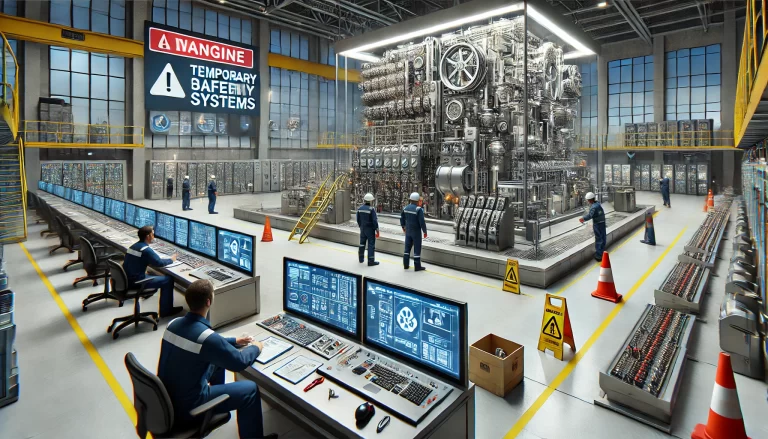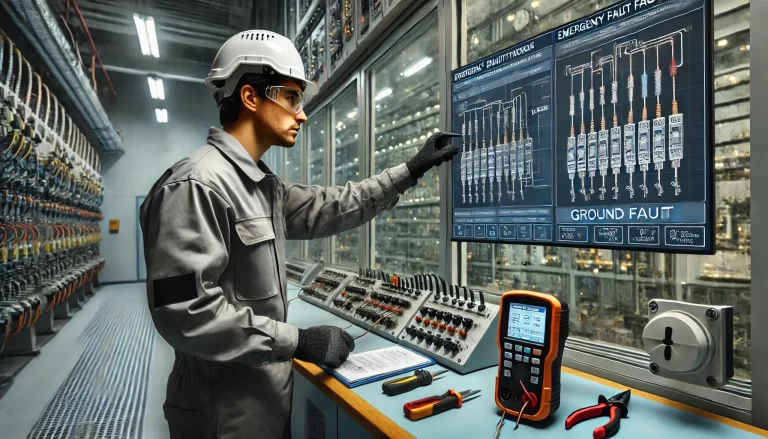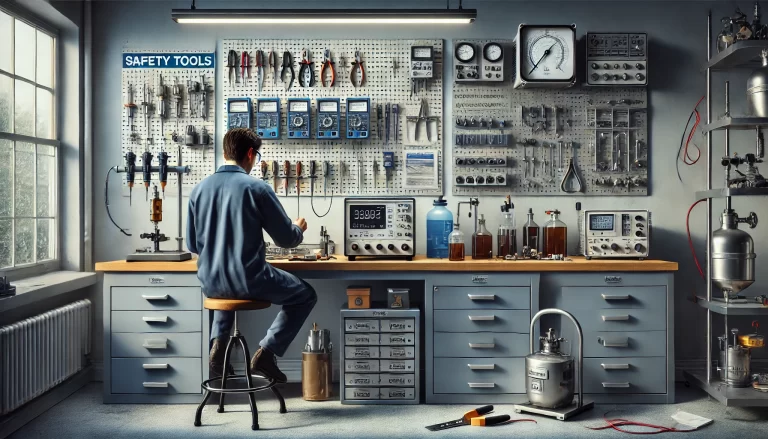In modern industrial environments—particularly in chemical plants and refineries—instrumentation technicians are no longer just responsible for installing and maintaining instruments. They are now expected to understand the broader process landscape in which these instruments operate. This article explains why process knowledge is critical for every instrumentation technician and to what level this knowledge should be developed.
1. The Foundation of Accurate Fault Diagnosis
One of the most common challenges in process plants is diagnosing and resolving instrumentation failures quickly and accurately. Without a solid understanding of the underlying process, troubleshooting can become a guessing game.
Example:
Imagine a flowmeter on a production line starts giving erratic readings. A technician focused only on the instrument might immediately check the sensor, recalibrate the device, or even replace components—only to find that the real issue was a partially blocked pipeline or a faulty control valve. These are process-related problems that cannot be identified unless the technician understands how the process works.
Key takeaway:
Process knowledge helps technicians take a system-wide approach to troubleshooting, identifying whether the problem lies in the instrument itself or elsewhere in the process system. This not only improves diagnostic accuracy but also saves valuable time and reduces production downtime.

2. Ensuring Proper Instrument Selection and Configuration
Not all instruments are created equal—and certainly not all instruments are suitable for every process condition.
Each chemical process comes with unique requirements: high pressure, extreme temperature, corrosive media, rapid response times, and strict accuracy demands. If a technician is unfamiliar with these conditions, they may select an inappropriate instrument, leading to:
Reduced service life
Increased maintenance costs
Safety risks due to leakage or failure
Example:
In a high-temperature, high-corrosion environment, choosing a sensor with the wrong material (e.g., stainless steel instead of Hastelloy) may result in early corrosion and failure. Understanding the process allows the technician to match the right instrument with the right specs—range, material, output signal, and accuracy.
Key takeaway:
By understanding the process parameters and constraints, instrumentation personnel can configure systems that are safer, more reliable, and more cost-effective.

3. Driving Process Optimization and Efficiency
Instrumentation plays a pivotal role in process control—and by extension, process optimization. Technicians with strong process knowledge can go beyond maintenance tasks and contribute actively to improving efficiency, quality, and productivity.
Example:
In distillation columns, variables like feed rate, temperature, pressure, and reflux ratio all interact to determine product purity. An instrumentation technician who understands this relationship can help tune control loops, calibrate sensors more accurately, and even suggest improved control strategies to stabilize product quality.
Key takeaway:
Technicians who understand how process variables influence outcomes can proactively support production goals, making them valuable contributors to operational excellence.
What Level of Process Knowledge Should Instrument Technicians Have?
To fulfill their evolving role, instrumentation technicians should aim to achieve competency in three key areas:
1. Understanding the Overall Process Flow
Technicians must develop a clear picture of the plant’s end-to-end operations—from raw material input to product output. This includes understanding:
The purpose of each stage (e.g., reaction, separation, purification)
How stages are interconnected
Where instruments are applied in each stage
Example:
In ammonia production, the technician should be familiar with stages like gasification, desulfurization, shift conversion, CO₂ removal, and synthesis. Knowing the function and challenges of each stage helps place instrumentation decisions in context.

2. Mastering Key Process Parameters
Technicians should know not only the values that define good operation (e.g., pressure = 5 bar) but also why those values matter.
Example:
A reactor operating at 200°C may require strict temperature control to prevent runaway reactions or poor conversion. The technician must understand:
The acceptable operating range
The risks of deviation
How the control loop stabilizes the process
This knowledge empowers technicians to spot early warning signs, respond effectively, and suggest improvements.
3. Reading and Interpreting Process Diagrams
Process Flow Diagrams (PFDs) and Piping & Instrumentation Diagrams (P&IDs) are essential tools. Technicians must be able to:
Identify control loops
Understand instrument tagging and locations
Recognize connections between devices and process equipment
This skill is especially critical during installation, commissioning, and troubleshooting. It ensures that instruments are installed correctly and function as intended within the process architecture.

Conclusion: Process Knowledge is a Core Skill, Not an Optional Extra
As process industries continue to automate and evolve, the role of instrumentation technicians is expanding. Mastering process knowledge is no longer a luxury—it’s a requirement for:
Accurate problem-solving
Smart instrument configuration
Effective collaboration with engineers
Career advancement and specialization
With a strong foundation in process operations, technicians can become key contributors to safety, efficiency, and continuous improvement.
